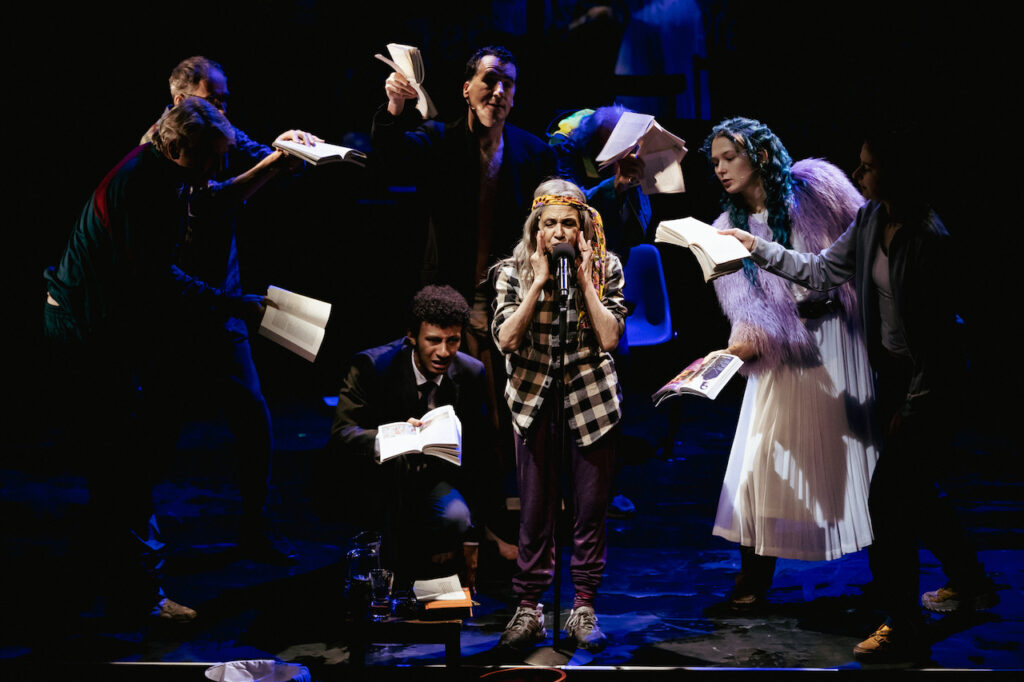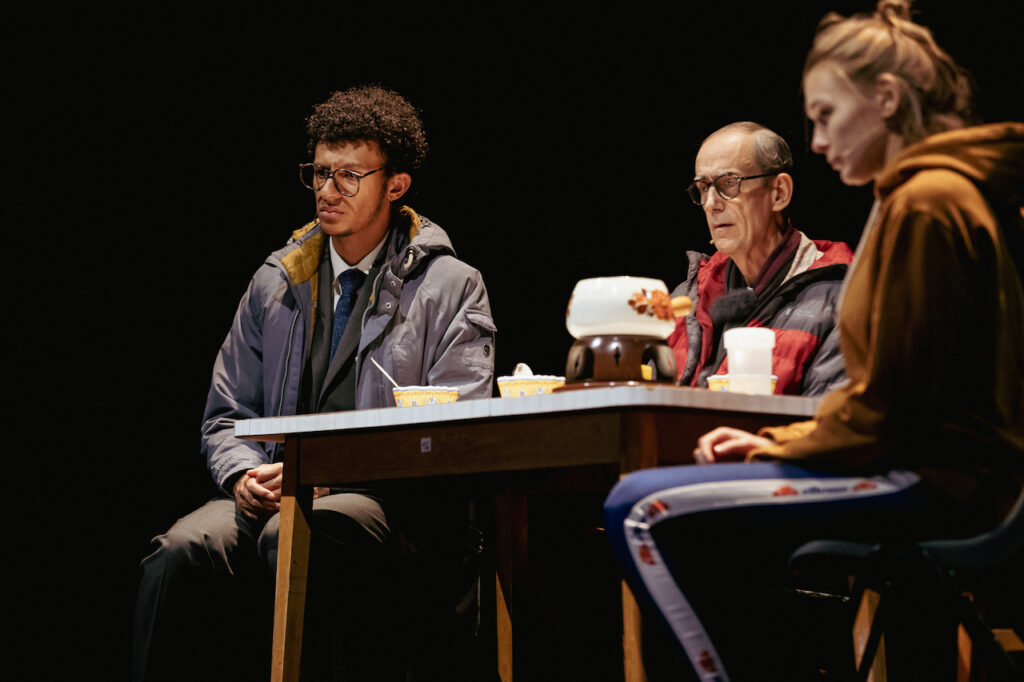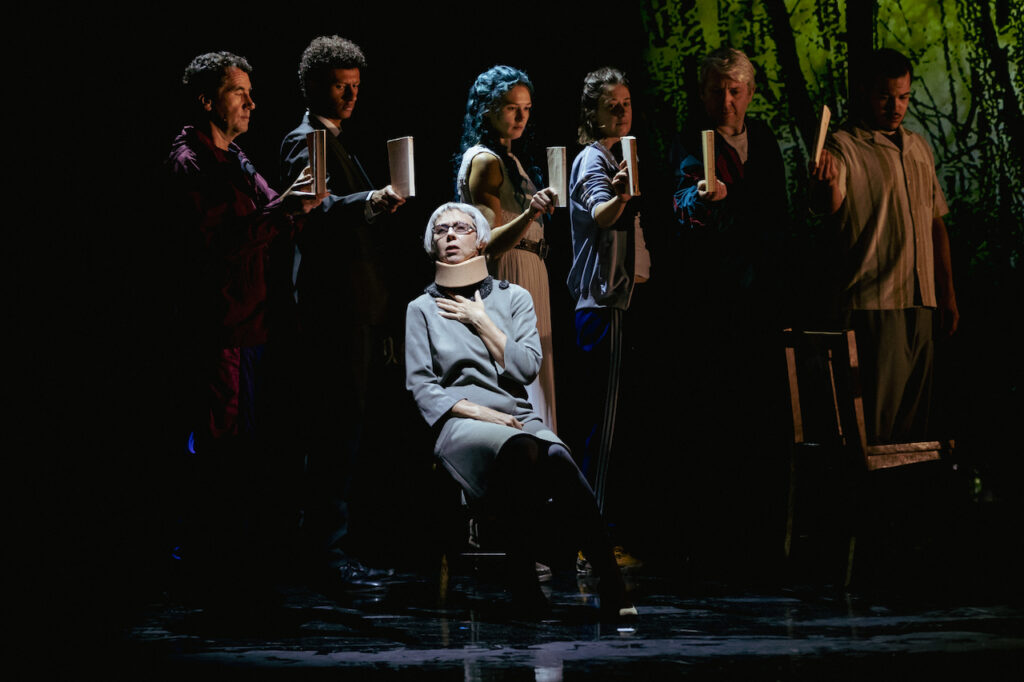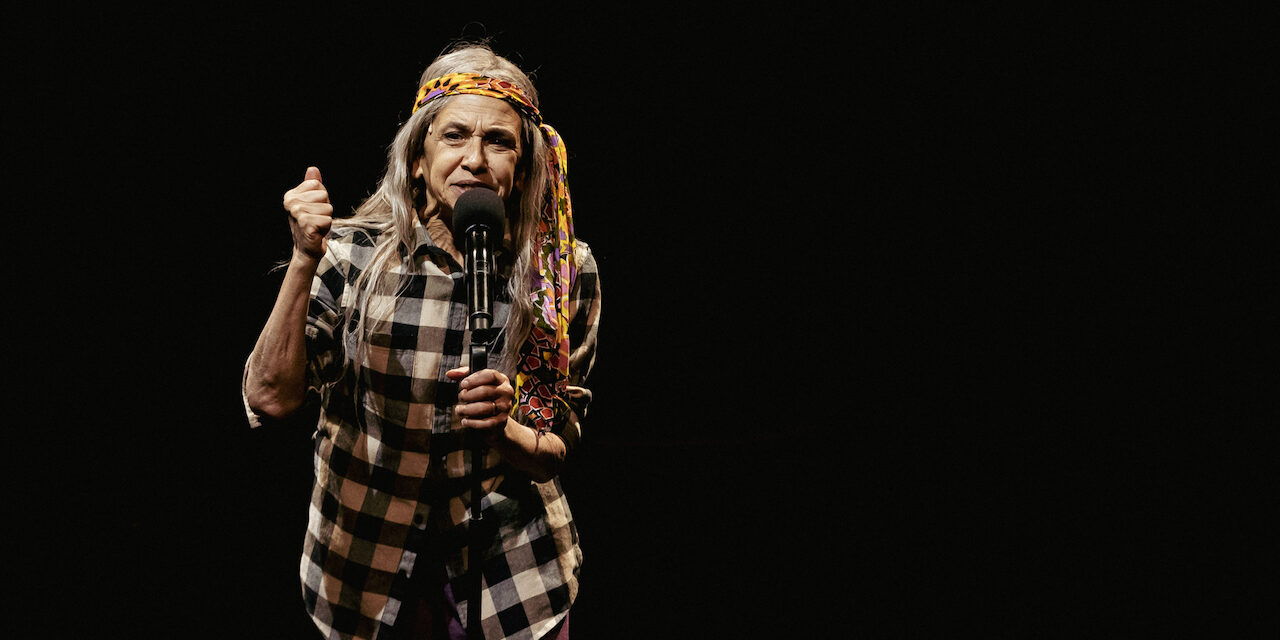
19 January – 11 February
In this stage adaption of Polish writer Olga Tokarczuk’s 2018 Nobel Prize winning novel, European theatre company Complicité have created a memorable and moving tribute to a piece that runs as part murder mystery, part modern day eco fable.
In the gravel-voiced Kathryn Hunter they have an extraordinary champion playing the narrator/protagonist Janina Duszejko, an ageing, remote woman living alone with her dogs, her ‘girls’, on a wind and snow-swept plateau somewhere near the Polish/Czech Republic border.
Tokarczuk’s Duszejko is a complex character with a long backstory. No ordinary pensioner, she is driven by her passionate belief that animals, as fellow living beings, should be accorded respect and empathy – not as the local Catholic priest would have it, that they have no souls and are simply put on this world to be dominated by man. Driven by a sense of ‘divine anger’ she sets out to confront the rooted patriarchy in her local community, where hunting, policing and religion are inseparable. Women, especially older women, she quickly finds out, count for very little in this testosterone fuelled world.
Hunter describes her relationship with Complicité as a love affair. The company seeks to understand how the body itself can tell a story. Hunter’s echoes this ambition with her depiction of Duszejko’s physical and mental anguish, her small frame becoming a lightning rod for the injustices brought down upon her beloved natural world, as she seeks to make sense of everything with a blind belief in astrology and a love of Blake’s philosophy.
One by one, neighbours are found murdered in strange circumstances. There seems to be a sense that animals might be co-ordinating to bump off some of their hunting tormentors – deer tracks are found around a body, beetles seething over another. Paranoia begins to grip the local community. The ‘great and good’ are beginning to fall. There is talk of a mafia. Rae Smith’s darkened staging together with Paule Constable’s subtle lighting and Christopher Shutt’s soft/strong soundscape gave a strong sense of the bleakness and occasional beauty of Duszejko’s surroundings while not flinching at the brutality of the hunters’ exploits.

As the community chatters about the monster in their midst, Janina is joined by bumbling close neighbour Odd Ball, played with wonderful eccentricity by César Sarachu, and former pupil Dizzy (Alexander Uzoka) with whom she has been translating Blake’s poetry. Together with Weronika Maria as the charming friend Good News, they effectively form an unlikely family group sitting outside the hunting mainstream.
Tim McMullen plays a convincingly conservative priest unaware of the hypocrisy in making a saint, beatified for stopping the slaughter of animals, the patron saint for hunters. Johannes Flaschberger has gravitas as the wandering entomologist Borys Sznajder, whose beetle observations and closeness to the natural world capture Janina’s heart. And Sophie Steer plays a powerful cameo as the distressed wife of The President of the Mushroom Pickers Society and a prolific hunter.

Directed by Simon McBurney, the play seamlessly passes through layers of presentation: beyond Hunter’s narration, and actual participation in the play, the company moves as one to create a sense of threat or unease, while the addition of very effective projected graphics and Blake’s pronouncements provides magical moments where the lie of the land, forest and simple snowfall transform the stage. At the beginning of the second Act, the cast stand silently gazing out into the audience. We see ourselves reflected in a large mirror behind them. Silent questions are being asked of ourselves.
With government badger culls and raw sewage gushing into our rivers and coastlines coming to mind, Tokarczuk’s revolutionary ode to ecocide questions our resolve to do something, and to whom we choose to listen to. Complicité’s powerful production deserves a wide audience.
***** Simon Bishop, 25th January, 2023
Photo credit: Camilla Adams


